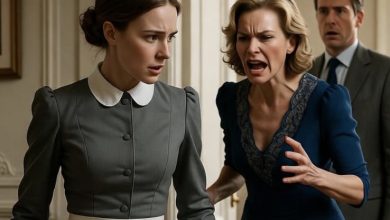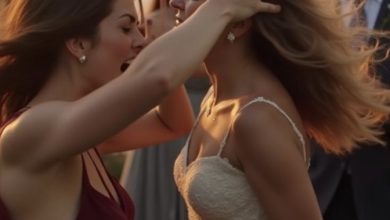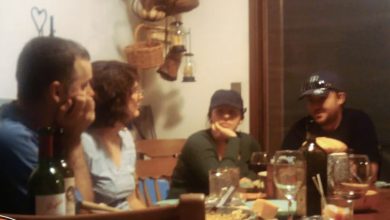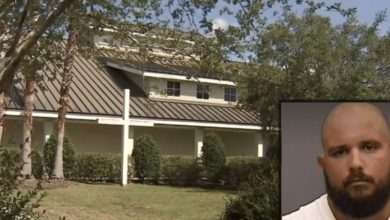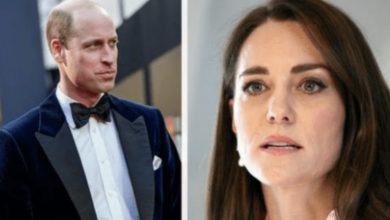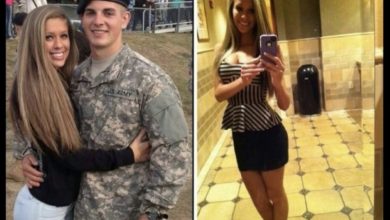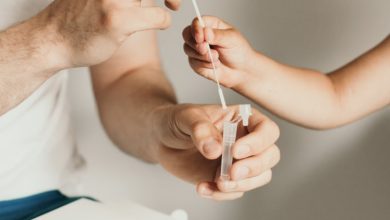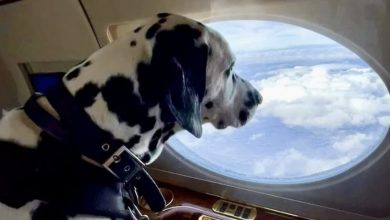She Called Me “Stupid” at My Son’s Wedding — But When He Found Out Who I Really Was, the Room Fell Silent
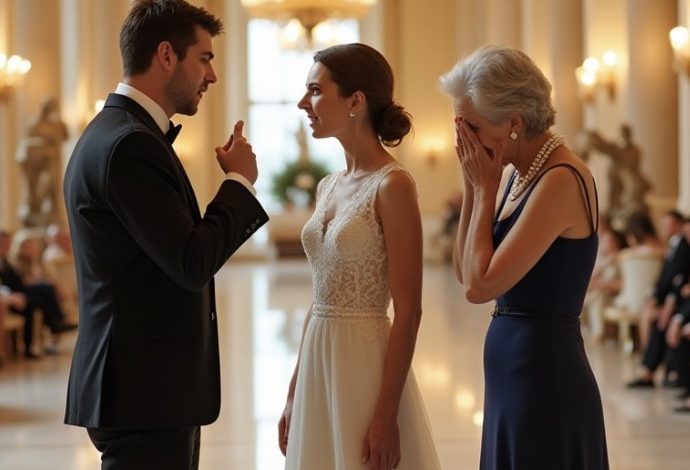
The moment her hand struck my cheek, the sound split the air like a whip. For one still, shattering second, everything stopped — the music, the chatter, even the clinking of glasses. The grand museum hall, filled with polished marble and golden light, went quiet as a grave. A hundred elegant guests stared, frozen mid-gesture, their faces caught between disbelief and delight at the spectacle unfolding before them.
I didn’t move. Couldn’t. The sting on my cheek burned hotter than the coal stoves I’d tended half my life, and my heart thudded in my chest like a trapped bird. The young woman in front of me — my new daughter-in-law — was trembling with rage, her perfect face twisted into something ugly and sharp.
“Liam,” she cried, turning toward the stage, where my son stood among his groomsmen. “I don’t even know who this woman is! She must be with the staff. Get her out of here!”
Those words hurt worse than the slap. I had been insulted before — by life, by poverty, by people who thought I didn’t belong — but this was different. This was erasure. To have my own son’s bride look at me, the mother who raised him alone, and pretend I was nobody.
The champagne still glistened on the floor where the tray had fallen, my sensible shoe tangled in the edge of the ornate rug that had tripped me. I wanted to apologize, to explain that I’d only been trying to help the caterer, that it was an accident. But my voice was gone.
And then I heard it.
“Victoria,” said my son, his voice low and cold as stone.
The crowd turned as one. He walked slowly across the polished floor, the echo of his shoes the only sound in the vast hall. When he stopped beside her, the silence was so deep that I could hear my own heartbeat.
“What did you just do?” he said.
He wasn’t asking. He was judging.
In that moment, the glittering world his bride loved so much began to crumble.
My name is Connie Lawrence, and I’m sixty-eight years old. Long before I ever set foot in a ballroom, I was the wife of a coal miner from West Virginia. My husband, Thomas, was the kind of man who built his life with his hands — rough, honest, and strong. The mountain took him from me, not in one terrible moment, but over years, through the slow poison of black lung disease. Each cough, each sleepless night, was another piece of him gone.
When he died, I was left with one son, a pile of bills, and a promise: the mine would not take Liam too.
So I worked. Mornings at the diner, evenings cleaning houses, nights stitching and mending until my eyes burned. The smell of bleach clung to me like a shadow. My hands cracked and bled, but I hid them from Liam so he wouldn’t see what his future cost.
He studied hard. He dreamed bigger than the valley we lived in. I’ll never forget the day I begged his school principal to give him more time to pay his course fees. The man made me sign papers like my word wasn’t enough. Liam overheard it all. He never said a thing, but that day lit a fire in him.
He worked, studied, built something from nothing. Years later, he flew me to New York for the first time — on his own jet. I stepped off that plane in my thrift-store shoes, carrying one battered suitcase, and stared at the city that had made my boy a success.
His apartment was a world of glass and white marble, so clean and silent that I didn’t know what to do with myself. There were people to cook, to clean, to drive him anywhere he wished. My hands — hands that had always known work — felt useless. One day he found me scrubbing his bathroom floor. “Mom,” he said gently, “you don’t have to do that anymore.” I smiled. “Son, keeping busy is all I know.”
Then came Victoria.
She was beautiful, sharp, polished — everything this new world expected. She came from old money, spoke with the kind of confidence that only people born rich ever have. At first, she was sweet, praising my “amazing journey,” telling her friends what an inspiration I was. But when we were alone, the sweetness faded.
“Connie,” she would say, laughing lightly, “maybe you should let the stylist choose something more… refined. That dress is a little outdated, don’t you think?”
Or she’d correct the way I said a word, her tone smooth but cutting. Every dinner, every party, she made sure I remembered where I came from.
I endured it for my son. He loved her — or thought he did.
The wedding was her masterpiece. It wasn’t held in a church, but in a museum filled with art and history, with ceilings so high they seemed to scrape the clouds. There were three hundred guests, each one more glamorous than the last. The air shimmered with perfume and champagne bubbles.
I stood near the back, watching my son give a speech. My dress — pale blue silk, the most expensive thing I’d ever worn — felt like armor. I was proud and nervous and small all at once.
Then I saw him — the young waiter, barely more than a boy, struggling with a tray of champagne glasses. His arms shook under the weight. Instinct took over. I stepped forward, smiling kindly. “Let me help you, son,” I said.
He looked relieved. I reached to steady the tray, but my heel caught on the edge of the ornate rug. The tray tilted. Glass shattered. Champagne flew.
And then… her slap. Her scream.
“You stupid, clumsy woman!” she shouted. “Do you know what you’ve done? Do you even belong here?”
The crowd gasped. My son froze. Then came his voice — calm, lethal. “What did you just do?”
He walked straight to me, ignoring the whispers, the eyes. He took off his tuxedo jacket, draped it over my shoulders, and helped me to my feet.
Then he turned to Victoria. “You just hit my mother,” he said, loud enough for everyone to hear.
Someone filmed it. Within hours, the video was everywhere. “The Wedding Slap,” they called it. My face — stunned and tear-streaked — looped across every social feed. They called me The Mother Who Endured. Brands cut ties with Victoria. Her charity boards asked her to resign. Overnight, her perfect world fell apart.
I never wanted that. I told Liam to stop it, but he couldn’t. “People need to see,” he said. “They need to remember what cruelty looks like.”
We left the city for a while. In a small house upstate, surrounded by quiet trees and clean air, we began to heal. Liam cooked for us, simple food like I used to make — beans, cornbread, stew. We laughed again. Sometimes he’d fall asleep on the couch, his head in my lap, and I’d smooth his hair the way I used to when he was little.
When we finally returned to New York, life was quieter. The tabloids had moved on. Victoria had disappeared from the headlines.
One gray afternoon, months later, I was ladling soup at a church kitchen in Brooklyn where I volunteered. The door opened, and a woman stepped inside. Thin, pale, her hair tied back, wearing a plain coat. It took me a moment to recognize her.
It was Victoria.
She stood in front of me, trembling, her eyes red. “Mrs. Lawrence… Connie,” she said softly. “I had to see you. I wanted to say I’m sorry. For everything. For the things I said… the way I treated you. I lost everything, and I deserve that. But I needed you to know I see it now — what I did, who I was.”
Her voice cracked. “I don’t expect you to forgive me.”
I looked at her — really looked. The pride, the armor, all of it was gone. She was just a young woman who’d made a terrible mistake and was drowning in the aftermath. I didn’t feel anger anymore. Only a quiet sadness.
I filled a bowl with hot soup, added a slice of bread, and handed it to her. “Everyone falls, Victoria,” I said gently. “The hard part is learning how to stand up again. Eat something. You look cold.”
She took the bowl in both hands, tears falling silently into the broth. Then she whispered, “Thank you.”
That night, back at the penthouse, I stood on the balcony watching the city lights shimmer below. Liam joined me, wrapping an arm around my shoulders. I held an old photo in my hand — me and Thomas, young and smiling, our faces dusted black from the mine but full of life.
Liam looked down at the picture, then at me. “You did everything for me, Mom,” he said.
I smiled, looking at my hands. The calluses were faded now, the veins visible beneath thin skin. “These hands have scrubbed floors, poured coffee, and buried your father,” I said. “But they built something good, Liam. They built you.”
He took my hands and kissed them, one by one. No words. Just that gesture — full of love, gratitude, and everything we’d survived.
The city buzzed below, endless and alive. We stayed there for a long time, the lights reflecting in the window like a sky full of second chances.
And I thought to myself: the world had seen me as the poor woman slapped at a wedding. But that wasn’t the real story. The real story was that love — real, honest love — can’t be bought, humiliated, or erased.
It can only endure.

